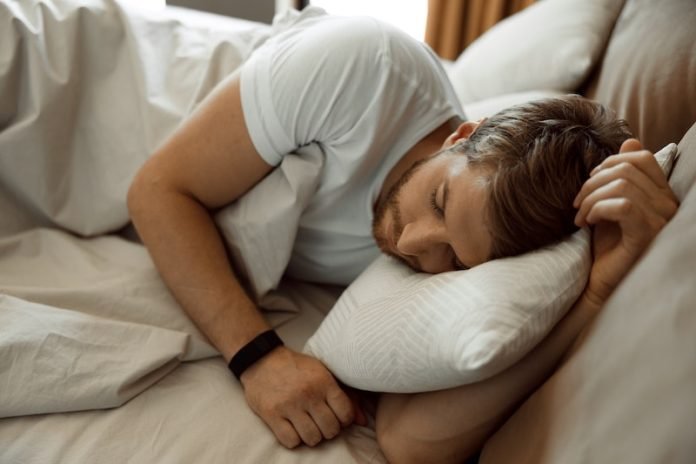
Did you know how you think about your sleep can change how you feel when you wake up? That’s what a group of scientists at the University of Warwick discovered.
In simpler words, it’s not about how well we actually sleep. Instead, it’s about how we feel we slept. This study shows that if you think you had a good sleep, you will feel better the next day.
But if a device that tracks your sleep says you slept well, and you feel like you didn’t, then you won’t feel as good. Let’s explore this study in more detail.
What’s This Study About?
Researchers wanted to find out how our thoughts about our sleep affect our feelings the next day. They decided to do a study to find out.
They got more than 100 young people between the ages of 18 and 22 to help with their study. These young people had to write in a sleep diary every day for two weeks.
They wrote about things like when they went to bed, when they woke up, and how they felt about their sleep.
The young people also had to wear a device on their wrist all the time. This device can track how much a person moves when they’re sleeping.
Now, why do researchers use this device? They use it to try and understand how much and how well a person is sleeping. But in this study, they wanted to do something different.
They wanted to see if there was a difference between what the device said about a person’s sleep and how that person felt about their sleep.
How People Feel About Their Sleep
The young people in the study also had to share their feelings five times a day. They were asked about both good and bad emotions. They were also asked about how happy they were with their life.
What did the researchers find out? They found out that what the young people thought about their sleep was closely tied to how they felt about their life.
For example, when the young people felt they had a better sleep than normal, they had more good feelings the next day. They also felt happier about their life.
Interestingly, the device that tracked their sleep showed something different. According to the device, the young people were not sleeping better than normal.
Yet, they still felt better. This showed the researchers that there was a big difference between what the device said and what the young people felt about their sleep.
Dr. Anita Lenneis, the main person behind this study, said that it’s the young people’s own thoughts about their sleep that mattered. Not what the device said about their sleep.
The Impact on Our Lives
You might be thinking, why is this important? This is important because how we feel about our life can affect many things. It can affect our mood, our work, and even our relationships with other people.
It’s important to remember that our feelings about our sleep are just our own thoughts. And these thoughts can change. For example, you might wake up feeling bad about your sleep.
But when you see that your sleep tracking device says you had a good sleep, you might start to feel better about your sleep. And this can make you feel better about your day too.
On the other hand, if your device says you had a good sleep but you don’t feel like you did, this might make you question your sleep.
And questioning your sleep might not be a good thing. It could make you feel bad about your sleep, even when there’s nothing wrong.
Conclusion
This study shows us that our own thoughts are powerful. Our thoughts can change how we feel about ourselves and our lives. In this case, thinking we had a good sleep can make us feel better.
Even when a device that tracks our sleep says we didn’t sleep well. This is something we can all remember when we wake up in the morning.
No matter how we slept, it’s how we feel about our sleep that really matters. So, let’s start each day by thinking positively about our sleep. This might just make our day a little bit better.
If you care about sleep, please read studies about the science on 3 traditional bedtime remedies, and this sleep supplement may help prevent memory loss and cognitive decline.
For more information about sleep, please see recent studies about how to sleep to prevent Alzheimer’s disease, and results showing scientists find silent sleep danger for smokers.
The study was published in Emotion.
Follow us on Twitter for more articles about this topic.
Copyright © 2023 Knowridge Science Report. All rights reserved.



